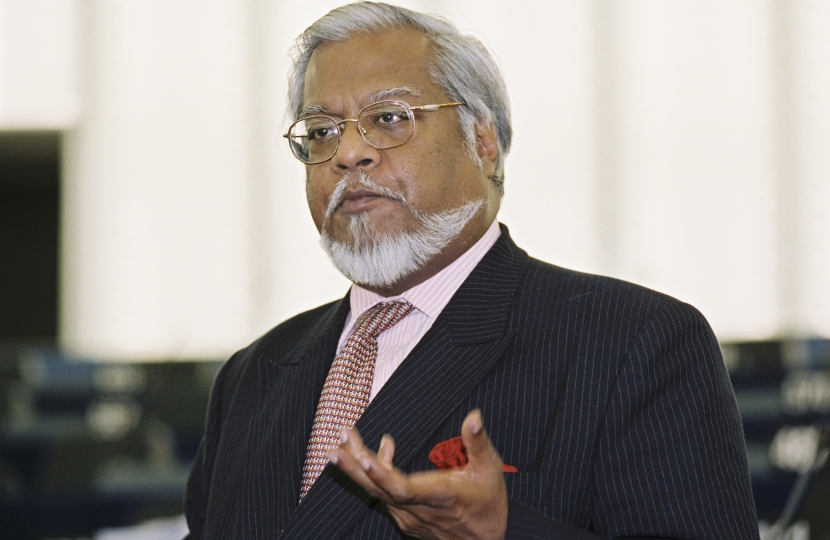
The Chairman of the European Parliament's Delegation for Relations with the Korean Peninsula, who is engaged in behind the scenes negotiations to defuse tensions between the North and South, has welcomed today's landmark meeting between the North's Kim Jong-un and Moon Jae-in of South Korea.
But Nirj Deva, a Conservative MEP, warned this was simply a first, albeit important step.
Mr Deva has held 16 meetings over the past 30 months with senior figures from the North Korean regime and more are planned. He has also liaised with the South Korean, Chinese and U.S. governments over the course of 50 in-depth meetings.
He said: "This is an historic day of marvellous symbolism and the world should congratulate President Moon and Supreme Leader Kim for their political courage and their efforts to bring peace and stability to the Korean Peninsula. For all those who have supported our delegation's cry in the wilderness for the past four years, my sincerest gratitude.
"We have come a remarkably long way in recent months. The target set today of signing a peace deal, this year, formally ending the Korean War is hugely symbolic and an important step along the road; one that I have been relentlessly advocating for the past four years."
Mr Deva, who is also Vice Chairman of the European Parliament's International Development Committee, added: "Of course denuclearisation is our ultimate goal and I am encouraged by today's agreement to work towards ridding the peninsula of nuclear weapons. However, we must be patient and careful in the demands we now place on DPRK. Hand-in-hand with denuclearisation will come the chance for economic development and the hope of bettering the lives of the most vulnerable in the DPRK.
"We have to understand that the country has radicalised its position on nuclear weapons and institutionalised them. They are identity weapons that reinforce the authority of Kim Jong Un, legitimise the sacrifices of the population, strengthen internal cohesion and boost national morale.
"This promise to denuclearise is a seismic shift in the internal thinking of the DPRK and its Workers' Party. This transition will require Kim Jong un to completely revolutionise the thinking of the North Korean elite, setting new perspectives for them, linked to economic development."
